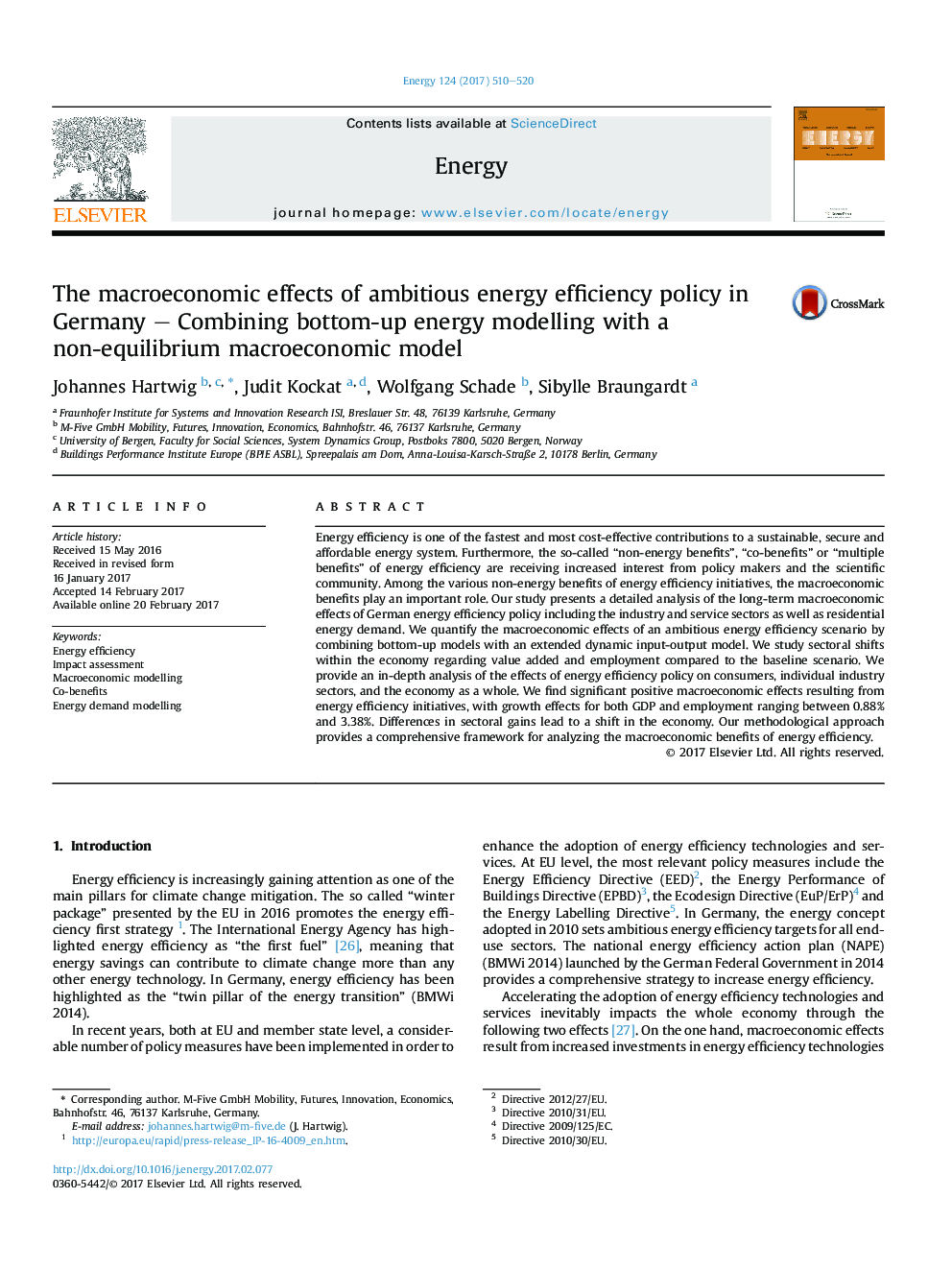| کد مقاله | کد نشریه | سال انتشار | مقاله انگلیسی | نسخه تمام متن |
|---|---|---|---|---|
| 5475980 | 1521427 | 2017 | 11 صفحه PDF | دانلود رایگان |

- Integration of detailed sectoral models for energy demand with macroeconomic model.
- Detailed assessment of effects of ambitious energy efficiency targets for Germany.
- Positive macroeconomic effects can support policymaking and reduce uncertainty.
Energy efficiency is one of the fastest and most cost-effective contributions to a sustainable, secure and affordable energy system. Furthermore, the so-called “non-energy benefits”, “co-benefits” or “multiple benefits” of energy efficiency are receiving increased interest from policy makers and the scientific community. Among the various non-energy benefits of energy efficiency initiatives, the macroeconomic benefits play an important role. Our study presents a detailed analysis of the long-term macroeconomic effects of German energy efficiency policy including the industry and service sectors as well as residential energy demand. We quantify the macroeconomic effects of an ambitious energy efficiency scenario by combining bottom-up models with an extended dynamic input-output model. We study sectoral shifts within the economy regarding value added and employment compared to the baseline scenario. We provide an in-depth analysis of the effects of energy efficiency policy on consumers, individual industry sectors, and the economy as a whole. We find significant positive macroeconomic effects resulting from energy efficiency initiatives, with growth effects for both GDP and employment ranging between 0.88% and 3.38%. Differences in sectoral gains lead to a shift in the economy. Our methodological approach provides a comprehensive framework for analyzing the macroeconomic benefits of energy efficiency.
Journal: Energy - Volume 124, 1 April 2017, Pages 510-520